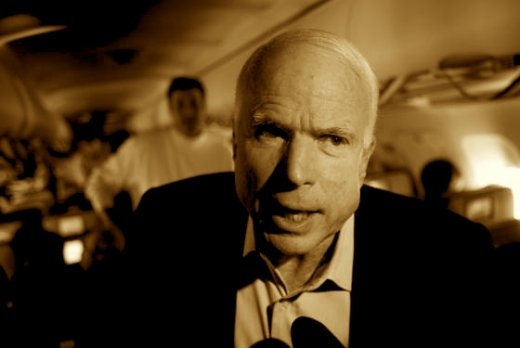
WASHINGTON — Early in Senator John McCain’s first run for the White House eight years ago, waves of anxiety swept through his small circle of advisers. A female lobbyist had been turning up with him at
fund-raisers, visiting his offices and accompanying him on a client’s corporate jet. Convinced the relationship had become romantic, some of his top advisers intervened to protect the candidate from himself — instructing staff members to block the woman’s access, privately warning her away and repeatedly confronting him, several people involved in the campaign said on the condition of anonymity. When news organizations reported that Mr. McCain had written letters to government regulators on behalf of the lobbyist’s client, the former campaign associates said, some aides feared for a time that attention would fall on her involvement. Mr. McCain, 71, and the lobbyist, Vicki Iseman, 40, both say they never had a romantic relationship. But to his advisers, even the appearance of a close bond with a lobbyist whose clients often had business before the Senate committee Mr. McCain led threatened the story of redemption and rectitude that defined his political identity. MORE
*
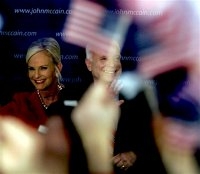 DRUDGE REPORT: MCCAIN PLEADS WITH NY TIMES TO SPIKE STORY
DRUDGE REPORT: MCCAIN PLEADS WITH NY TIMES TO SPIKE STORY
Thu Dec 20 2007 10:49:27 ET Just weeks away from a possible surprise victory in the primaries, Republican presidential candidate Sen. John McCain, R-Ariz, [pictured with his wife, left] has been waging a ferocious behind the scenes battle with the NEW YORK TIMES, the DRUDGE REPORT has learned, and has hired DC power lawyer Bob Bennett to mount a bold defense against charges of giving special treatment to a lobbyist![…] The drama involves a woman lobbyist who may have helped to write key telecom legislation. The woman in question has retained counsel and strongly denies receiving any special treatment from McCain. MORE
WIKIPEDIA: The Keating Five (or Keating Five Scandal) refers to a Congressional scandal related to the collapse of most of the Savings and Loan institutions in the United States in the late 1980s. Following the deregulation of the banking industry in the 1980s, savings and loan associations (also known as thrifts) were given the flexibility to invest their depositors’ funds in commercial real estate. (Previously, they had been restricted to investing in residential real estate.) Many savings and loan associations began making risky investments. As a result, the Federal Home Loan Bank Board, the federal agency that regulates the industry, tried to clamp down on the trend. In so doing, however, the FHLBB clashed with the Reagan administration, whose policy was deregulation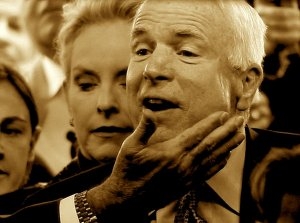 of many industries, including the thrift industry. The administration declined to submit budgets to Congress that would request more funding for the FHLBB’s regulatory efforts.
of many industries, including the thrift industry. The administration declined to submit budgets to Congress that would request more funding for the FHLBB’s regulatory efforts.
In 1989, the Lincoln Savings and Loan Association of Irvine, Calif., collapsed. Lincoln’s chairman, Charles H. Keating Jr., was faulted for the thrift’s failure. Keating, however, told the House Banking Committee that the FHLBB and its former chief Edwin J. Gray were pursuing a vendetta against him. Gray testified that several U.S. senators had approached him and requested that he ease off on the Lincoln investigation. It came out that these senators had been beneficiaries of $1.3 million (collective total) in campaign contributions from Keating. This allegation set off a series of investigations by the California government, the United States Department of Justice, and the Senate Ethics Committee. The ethics committee’s investigation focused on five senators: Alan Cranston (D–CA); Dennis DeConcini (D–AZ); John Glenn (D–OH); John McCain (R–AZ); and Donald W. Riegle, Jr. (D–MI), who became known as the Keating Five. MORE
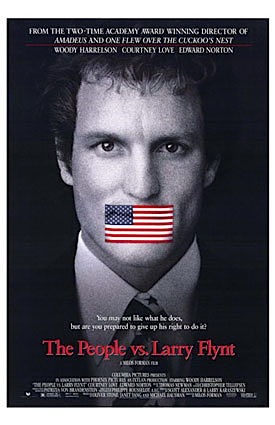 CHARLES KEATING: In the late 1950s, Keating founded the Cincinnati anti-pornography organization Citizens for Decent Literature, later Citizens for Decency through Law. In 1960 he testified against pornography before Congress. In 1964 – 1965, he produced the movie Perversion for Profit featuring announcer George Putnam. It was a survey of then-available pornography, and an attempt to link pornography to the decline of culture and to the depravity of youth. In 1969, President Richard Nixon appointed Keating to the President’s commission on pornography, which had been begun under Nixon’s predecessor, Lyndon B. Johnson. Keating unsuccessfully attempted to stop publication of the commission’s rather liberal recommendations with a restraining order. Failing in that effort, he filed a dissenting report, stating “One can consult all the experts he chooses, can write reports, make studies, etc., but the fact that obscenity corrupts lies within the common sense, the reason, and the logic of every man.” In 1971, Keating unsuccessfully tried to stop the showing in Cincinnati of the film Vixen!, produced by film-maker Russ Meyer. Keating was also instrumental in the ineffective obscenity prosecution of pornographer Larry Flynt in 1976 in Cincinnati. MORE
CHARLES KEATING: In the late 1950s, Keating founded the Cincinnati anti-pornography organization Citizens for Decent Literature, later Citizens for Decency through Law. In 1960 he testified against pornography before Congress. In 1964 – 1965, he produced the movie Perversion for Profit featuring announcer George Putnam. It was a survey of then-available pornography, and an attempt to link pornography to the decline of culture and to the depravity of youth. In 1969, President Richard Nixon appointed Keating to the President’s commission on pornography, which had been begun under Nixon’s predecessor, Lyndon B. Johnson. Keating unsuccessfully attempted to stop publication of the commission’s rather liberal recommendations with a restraining order. Failing in that effort, he filed a dissenting report, stating “One can consult all the experts he chooses, can write reports, make studies, etc., but the fact that obscenity corrupts lies within the common sense, the reason, and the logic of every man.” In 1971, Keating unsuccessfully tried to stop the showing in Cincinnati of the film Vixen!, produced by film-maker Russ Meyer. Keating was also instrumental in the ineffective obscenity prosecution of pornographer Larry Flynt in 1976 in Cincinnati. MORE
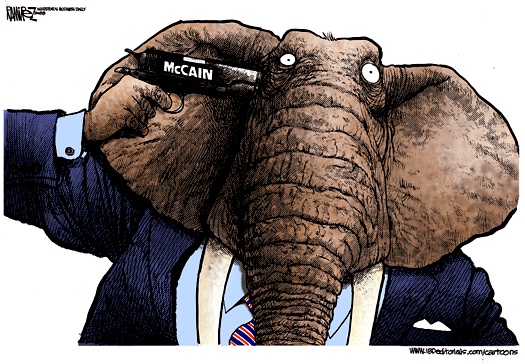
NEWSWEEK: John McCain is being tested mightily — and not by the Democrats. The most passionate criticism of McCain is coming from conservative celebrities (and semi-celebrities) who believe he is a sleeper liberal. The ferocity of the remarks from Rush Limbaugh, James Dobson, Ann Coulter, Laura Ingraham, Sean Hannity and others, Holly Bailey reports, has McCain watching his own words with care.
“He’s still the straight talker, the guy who seems to take some enjoyment in mixing it up with voters at town halls over, for example, immigration reform,” says Holly, a coauthor of our cover this week. “But
you can also tell he’s trying to be very careful about choosing his words when it comes to his critics, especially his fellow Republicans. His aides have been telling him to think and act presidential, and he has been, to some extent. When you ask him about Rush Limbaugh and critics who have been hammering him on talk radio, he often responds by saying that he’ll work to unite the party. But you can tell it irritates him. He sometimes pauses before answering, as if he’s trying not to pop off. It doesn’t always work. Last week he made it pretty clear to reporters on his plane that he doesn’t care for Limbaugh’s show. ‘I don’t even listen,’ he said. ‘I’m not a masochist.’ It was about that time that one of his aides tried to push him back toward his seat at the front of the plane.” MORE
*
